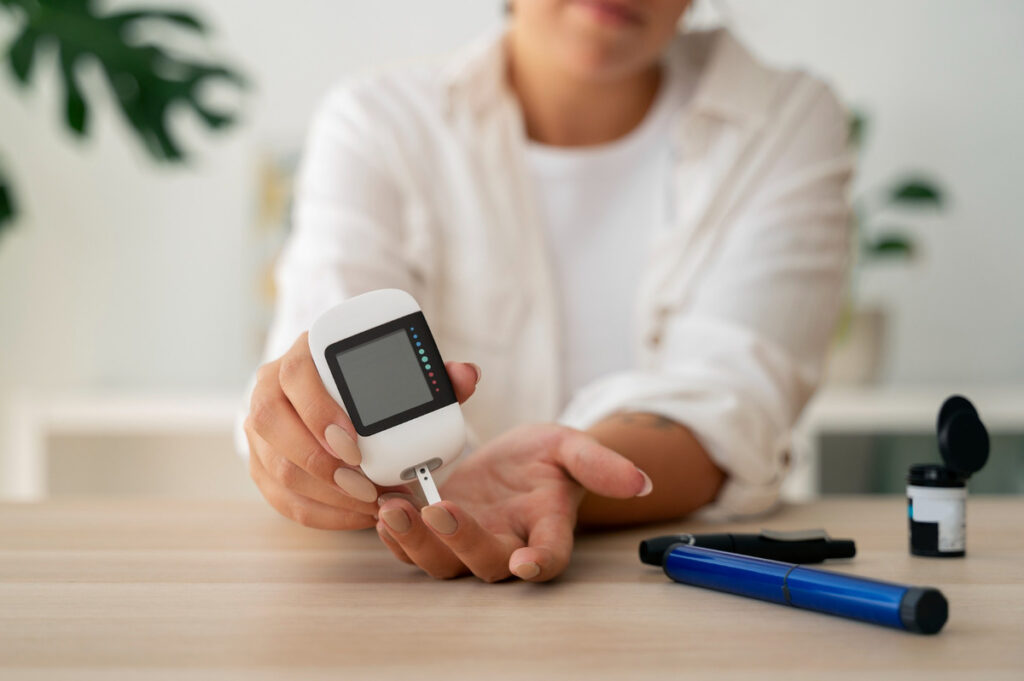Diabetes and tinnitus are two conditions that affect millions of people worldwide, and growing evidence suggests they may be more closely linked than many realize.
Tinnitus, often described as a ringing, buzzing, or hissing in the ears, is not a disease itself but a symptom of underlying issues in the auditory system.
Diabetes, a chronic metabolic disorder that affects how the body processes blood sugar, can influence nerve health, blood circulation, and inflammation.
When combined, these two conditions may exacerbate each other, making management more challenging.
Understanding their connection is essential for improving both ear health and overall quality of life.
Diabetes and Tinnitus
The relationship between diabetes and tinnitus is complex but clinically significant.
People with diabetes are more likely to experience hearing problems, including tinnitus, than the general population.
High blood sugar can damage small blood vessels and nerves throughout the body, including those that supply the inner ear.
Over time, this vascular and neural damage can impair auditory function and lead to the perception of phantom sounds.
Diabetes-related complications such as neuropathy, inflammation, and poor circulation may further worsen tinnitus symptoms.
Although not every person with diabetes develops tinnitus, the risk is notably higher, underscoring the need for proactive management.
How High Blood Sugar Affects the Auditory System
Hyperglycemia, or high blood sugar, is one of the main ways diabetes contributes to tinnitus.
The inner ear depends on a constant supply of oxygen and nutrients delivered through small blood vessels.
Chronic high blood sugar can weaken these vessels, reducing blood flow to the auditory system.
This impaired circulation can damage the delicate hair cells in the cochlea, which are responsible for translating sound waves into electrical signals for the brain.
Once damaged, these hair cells do not regenerate, leading to permanent hearing difficulties and sometimes tinnitus.
In addition, high blood sugar can increase oxidative stress, which damages cellular structures and accelerates nerve degeneration.
The combined effect of vascular and oxidative damage creates an environment in which tinnitus is more likely to develop.
Diabetic Neuropathy and Its Role in Tinnitus
Diabetic neuropathy is another key factor linking diabetes to tinnitus.
Neuropathy refers to nerve damage caused by prolonged exposure to high blood sugar.
Most commonly, it affects the feet and hands, but it can also impact cranial nerves, including those involved in hearing and balance.
When auditory nerves are compromised, the brain may misinterpret faulty signals as phantom sounds.
This explains why many people with diabetes experience tinnitus even in the absence of external noise.
The longer diabetes remains uncontrolled, the higher the risk of neuropathy and tinnitus.
Preventing or managing neuropathy through proper blood sugar regulation is crucial in reducing tinnitus risk.
Risk Factors That Worsen Both Conditions
Several risk factors can intensify the connection between diabetes and tinnitus.
Hypertension is common in individuals with diabetes and can damage both blood vessels and auditory structures.
Obesity contributes to inflammation and worsens metabolic dysfunction, further stressing the auditory system.
High cholesterol levels can accelerate plaque buildup in arteries, reducing circulation to the inner ear.
Smoking compounds these effects by constricting blood vessels and increasing oxidative stress.
Poor diet and sedentary lifestyle further contribute to both conditions, amplifying their negative impact.
Addressing these risk factors holistically is essential for minimizing complications.
Managing Diabetes and Tinnitus Together
Living with diabetes and tinnitus requires a comprehensive management strategy that targets both conditions.
The foundation is maintaining stable blood sugar levels through diet, exercise, and medication when prescribed.
A balanced diet rich in fiber, lean proteins, healthy fats, and low-glycemic carbohydrates supports stable glucose control.
Regular physical activity improves insulin sensitivity and enhances circulation to all organs, including the ears.
Routine medical checkups, including hearing evaluations, can help detect problems early.
Patients should also avoid excessive noise exposure, as it can worsen tinnitus symptoms.
Good sleep hygiene, stress management, and hydration also play supportive roles in maintaining ear health.
Medical Treatments and Professional Support
Medical treatments vary depending on the severity of each condition.
For diabetes, physicians may prescribe medications such as metformin, insulin, or other glucose-lowering agents.
For tinnitus, there is no universal cure, but therapies like sound therapy, hearing aids, or cognitive behavioral therapy may help reduce distress.
Working with a multidisciplinary healthcare team ensures both diabetes and tinnitus are addressed simultaneously.
Consulting with endocrinologists, audiologists, and nutritionists can provide personalized strategies for better outcomes.
Natural Remedies to Support Ear Health in Diabetics
In addition to medical and lifestyle approaches, natural remedies may provide additional support for those managing both diabetes and tinnitus.
Sonus Complete is a natural supplement formulated with a blend of vitamins, minerals, and plant extracts aimed at reducing tinnitus symptoms.
Its ingredients, such as vitamin B12, hibiscus, garlic, and hawthorn berry, promote better circulation, reduce inflammation, and support nerve health.
For individuals with diabetes, these benefits may be especially valuable, as they address common pathways of damage in both conditions.
Sonus Complete is stimulant-free, non-GMO, and manufactured in FDA-approved facilities, making it suitable for long-term use.
When combined with proper blood sugar management, it may help reduce the intensity of tinnitus and improve overall well-being.
Take Control of Diabetes and Tinnitus Together
The coexistence of diabetes and tinnitus highlights the importance of caring for both metabolic and auditory health.
By controlling blood sugar, managing risk factors, and supporting ear function, individuals can significantly reduce the impact of these conditions.
Sonus Complete offers a natural way to support auditory health and may complement your diabetes management plan.
To know more about this supplement and how it can help reduce tinnitus symptoms, visit this page.









